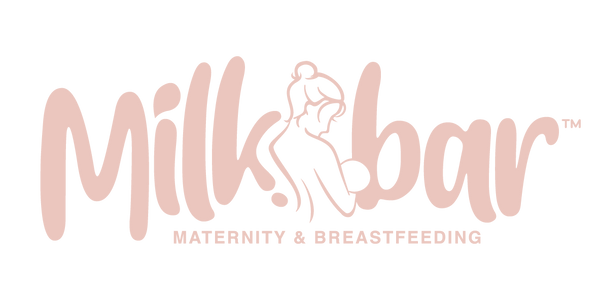
Why Breastfeeding and How To Support Breastfeeding Mothers
Share
Breastfeeding is a beautiful and natural way for mothers to nourish their babies. It provides numerous benefits for both the mother and the baby, creating an unbreakable bond and laying the foundation for a healthy future. As we celebrate International Breastfeeding Week 2023, let's delve into the history, purpose, and incredible advantages of breastfeeding and International Breastfeeding Week.
The History and Purpose of International Breastfeeding Week:
International Breastfeeding Week was established in 1992 to raise awareness about the importance of breastfeeding and promote its benefits worldwide. The week-long celebration, which occurs annually from August 1st to 7th, was inspired by the Innocenti Declaration signed in August 1990 by government policymakers, WHO, UNICEF, and other organizations. This declaration aimed to protect, promote, and support breastfeeding as a crucial aspect of child health and development.
The Benefits of Breastfeeding:
Breast milk is nature's perfect food for infants, providing them with all the essential nutrients they need to thrive. But the advantages extend beyond basic nutrition. Let's explore some of the remarkable benefits of breastfeeding:
-
Nutritional Superiority: Breast milk is uniquely tailored to meet the nutritional needs of a growing baby. It contains the perfect blend of proteins, fats, vitamins, and minerals necessary for optimal development.
-
Immune System Support: Breast milk is packed with antibodies and immune cells that help protect babies from illnesses and infections. It serves as a shield, reducing the risk of respiratory infections, ear infections, gastrointestinal issues, and allergies.
-
Bonding Experience: Breastfeeding strengthens the emotional bond between mother and baby, fostering a deep connection. The skin-to-skin contact releases oxytocin, also known as the "love hormone," promoting feelings of love, comfort, and security for both.
-
Long-term Health Benefits: Breastfeeding has long-lasting effects on a child's health. Studies have shown that breastfed babies have a reduced risk of obesity, diabetes, asthma, allergies, and certain types of cancer later in life.
-
Convenience: Breast milk is readily available, always at the right temperature, and doesn't require any preparation.
Supporting Breastfeeding Mothers: It's crucial to provide support and resources for mothers who choose to breastfeed. Here are a few tips for new mums:
-
Seek Professional Guidance: Consult with lactation consultants, pediatricians, or breastfeeding support groups to address any concerns or difficulties you may encounter.
-
Establish a Supportive Environment: Surround yourself with family and friends who understand and encourage your breastfeeding journey. Their support and positivity can make a significant difference.
-
Take Care of Yourself: Maintain a healthy diet, stay hydrated, rest when you can, and prioritize self-care. Taking care of your own well-being will ultimately benefit your breastfeeding experience.
-
Educate Yourself: Attend breastfeeding classes or workshops during pregnancy to learn about proper latch techniques, positioning, and overcoming challenges you might face early on.
-
Find Your Tribe: Connect with other breastfeeding mothers through local support groups or online communities. Sharing experiences, advice, and stories can provide valuable insights and a sense of camaraderie.
As we celebrate International Breastfeeding Week, let us be reminded of the incredible miracles that breastfeeding brings to both mothers and babies.
The history, purpose, and countless benefits of breastfeeding highlight its significance in nurturing the next generation.
Breastfeeding is one of many ways to provide your child with a strong foundation for a healthy and thriving future. Embrace the journey, seek support, and enjoy this nurturing experience.
Sources:
- World Alliance for Breastfeeding Action (WABA)
- World Health Organization (WHO)
- United Nations Children's Fund (UNICEF)
- Parenting.FirstCry.com
Note: The information provided in this blog post is for informational purposes only and should not replace professional medical advice. Always consult with healthcare professionals for personalized guidance on breastfeeding and infant care.
